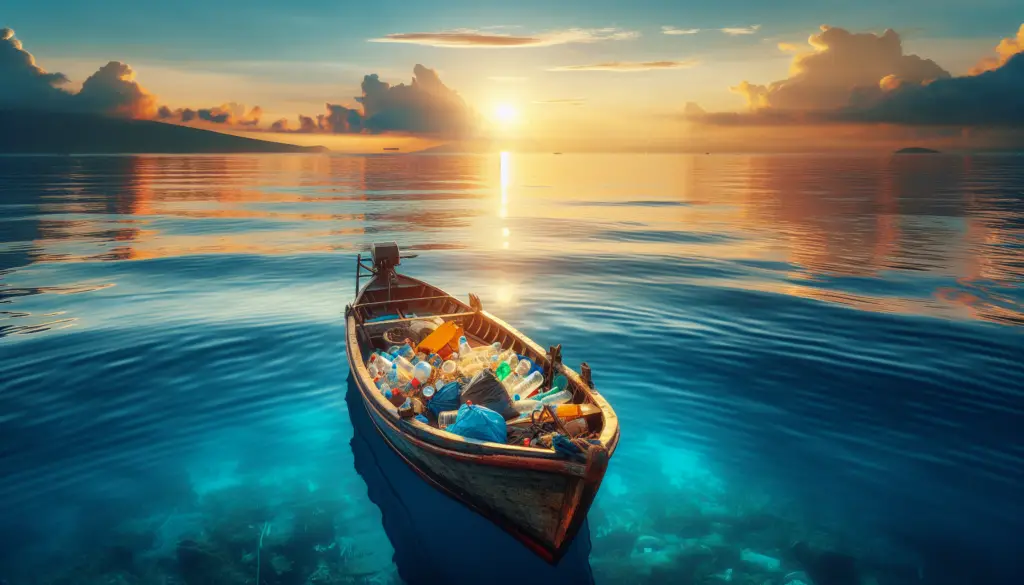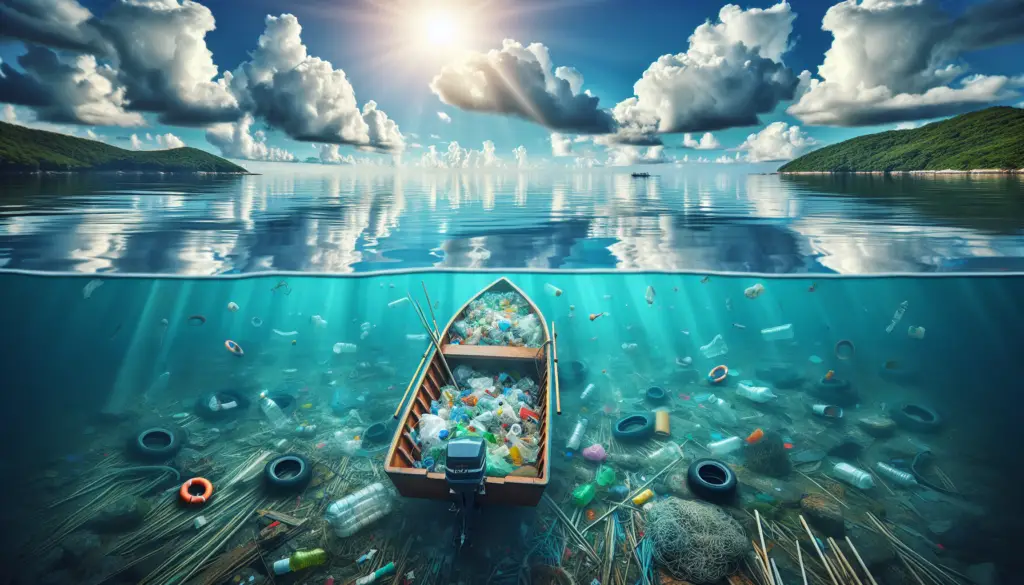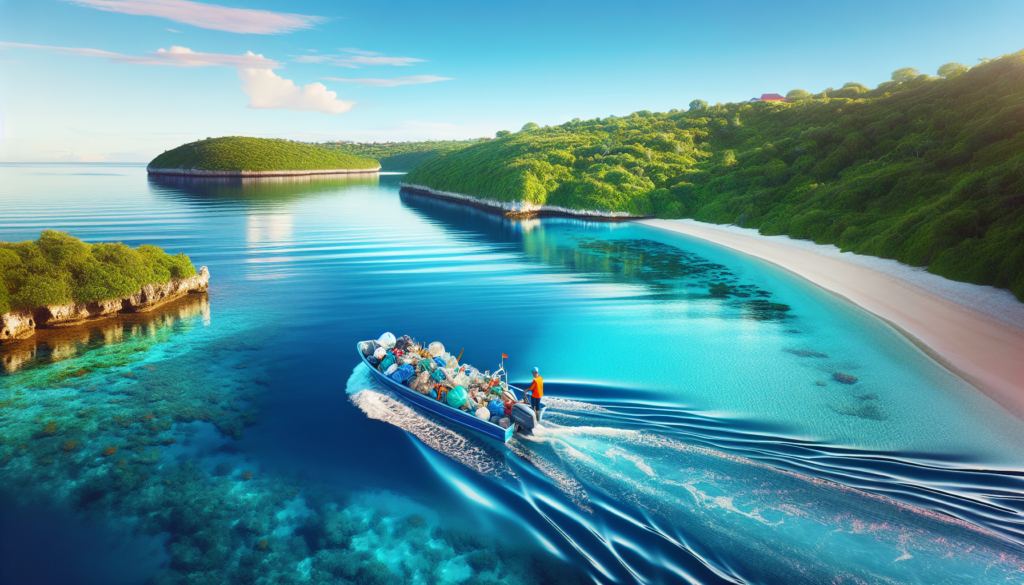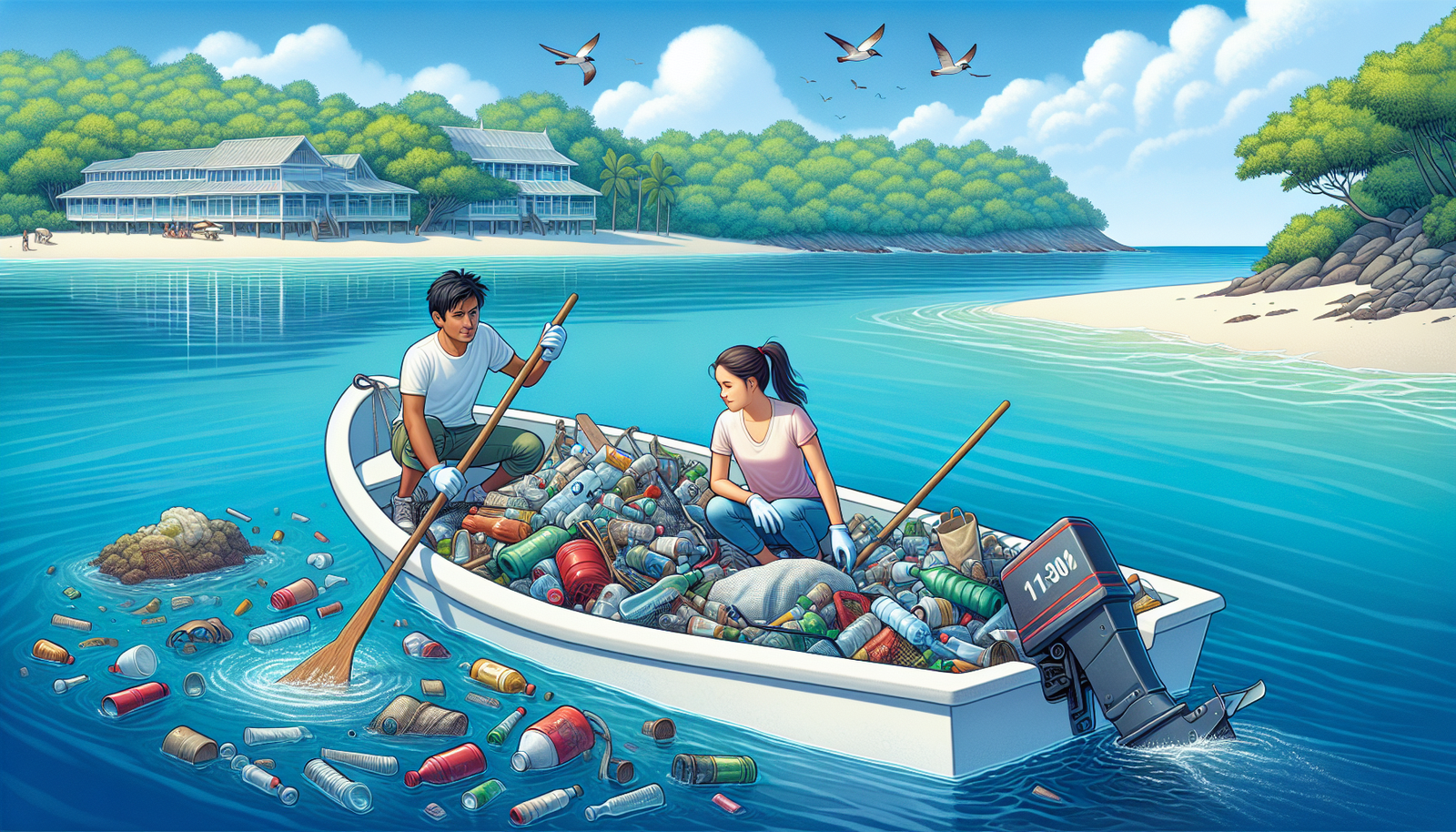Imagine yourself embarking on a journey across the sparkling blue sea, only to be marred by floating debris and marine waste. Against such blight, “The Role of Boating in Coastal Cleanup Initiatives” demonstrates how you, as an avid boater, can become an essential part of the solution. This article details the integral contribution boating can have on eliminating the torrents of trash poisoning our oceans and decimating marine biodiversity. It provides insights on how boating communities can transform their passion for the open sea into a determined effort for coastal conservation and cleanliness.

The Importance of Coastal Cleanup
Understanding the necessity of coastal cleanup
You may be wondering why coastal cleanup is so important. Well, let’s break it down. Our global ecosystem relies heavily on the health of our oceans and coastlines. Healthy coastlines act as natural barriers against natural hazards, aid in carbon sequestration, and provide habitats for a diverse array of marine life. Yet, human activities have led to an unprecedented accumulation of waste in these areas, threatening their ecological balance. This is where coastal cleanup comes in. It is an immediate and proactive action to remove these harmful wastes and restore the health of these vital ecosystems.
Consequences of marine pollution
Marine pollution poses severe threats to both marine life and human health. It can lead to the death of marine creatures, who often mistake waste for food, and disrupt the food chain. Furthermore, toxic substances released into the sea can accumulate in fish that are later consumed by humans, increasing the risk of various health issues. Marine pollution also impacts the beauty and appeal of coastlines, potentially hurting tourism-related businesses in these areas.
The global perspective on coastal cleanup initiative
Coastal cleanup is not just a local issue; it is a global one. From the arctic waters of Norway to the tropical coasts of Indonesia, countless efforts have been made around the world to combat marine pollution. International organizations, governments, environmental NGOs, and local communities are working hand in hand to raise awareness and facilitate coastal cleanups. It truly is a testament to the power of collective, worldwide action.
Relation between Boating and Coastal Cleanup
Boating as a means of reaching polluted areas
Boating plays a crucial role in coastal cleanup initiatives. Boats are often used to reach areas that are otherwise inaccessible by foot, such as offshore islands, secluded beaches, and portions of the open sea where waste tends to accumulate. The ability to access and clean these hard-to-reach spots significantly increases the effectiveness of cleanup efforts.
Boating as an effective tool in cleanup initiatives
In addition to providing access to remote areas, boats also enable more timely and effective cleanup efforts by serving as platforms for waste collection and transportation. Larger vessels can not only hold a substantial amount of debris but also house equipment like nets and mechanical arms to help expedite the cleanup process. The speed and agility of smaller boats, on the other hand, make them ideal for reaching areas that larger vessels cannot.
Boating communities’ role in coastal health
Boating communities often occupy the front lines in the battle against marine pollution. With their intimate knowledge of local waterways, boating communities can identify areas of concern before they intensify and educate others on responsible marine practices. Their passion for preserving the waters that they love adds a unique and vital dimension to cleanup initiatives.

Logistics of Using Boats in Cleanup Efforts
Necessary equipment for boat-led cleanup
To work effectively, boats used in coastal cleanup require some basic gear. This includes collection bags and bins, long-handled grabbers, gloves, and safety equipment. Additional resources like overhead cranes, conveyor belts, or hydraulic litter pickers are sometimes installed on larger vessels to aid in the removal of large debris or to tackle mass cleanup operations.
Navigating waterways during cleanup operations
Navigation is an essential aspect of boat-led cleanup operations. It involves careful planning to accurately chart routes, considering factors such as the nature of the waters, weather conditions, and areas that are most affected by pollution. Navigational skills are vital in ensuring safety and efficiency during a cleanup operation.
Safety considerations during boat-led cleanup
Safety during boat-led cleanups is paramount. Crews must be briefed on safety procedures, including the use of life vests, knowing how to respond to an emergency, and understanding the basics of first aid. The safety and well-being of participants ensure that the cleanup operation goes smoothly and beneficially.
Legal and Regulatory Aspects of Boating in Cleanup
Understanding marine laws and regulations
In some regions, certain laws and regulations govern activities on the water, including coastal cleanup. These might address issues like how to dispose of gathered waste, what type of equipment can be used, and more. Before embarking on a cleanup initiative, it is essential to familiarize yourself with these laws to ensure your efforts are both legal and safe.
Boating permits and licenses for cleanup initiatives
Certain jurisdictions might require permits or licenses for boats participating in cleanup activities, especially if large-scale operations or specific types of equipment are involved. Potential cleanup organizers should check with local maritime authorities to ascertain if any permits or licenses are needed.
Addressing liability and insurance aspects
Cleanup initiatives may pose potential risks, such as injury or damage to personal property. As such, it’s crucial to have liability strategies in place. This might mean waivers for participants who acknowledge the risks involved, or it could involve insurance coverage to protect against possible damage or injuries.

Benefits and Challenges of Cleanup Boating
Advantages of utilizing boats in cleanup initiatives
Boats offer a direct, efficient way to combat coastal and marine pollution. They can access remote areas, cover large stretches of water, and carry significant waste loads. Incorporating boats into cleanup initiatives not only amplifies the work done but also shines a light on the broader issue of marine pollution.
Difficulties and obstacles of cleanup boating
Despite its benefits, boating in the context of coastal cleanup is not without challenges. Navigation can be difficult in certain areas, and safety risks such as bad weather, rough water conditions, or close encounters with marine life can pose problems. Acquiring necessary permits and legal clearances can also present hurdles.
Solving common issues in cleanup boating
Though challenges exist, they can be surmounted with care and proper planning. Learning from experienced mariners can help in navigation skills and handling unexpected incidents. Advance planning can help with acquiring needed permits and compliance with marine laws.
Successful Case Studies of Boating in Cleanup Initiatives
Review of past successful cleanup initiatives involving boating
Over the years, there have been many successful cleanup initiatives that have utilized boats as a key part of their strategy. These projects range from small local efforts done by community boating clubs to large scale operations organized by major environmental organizations. These success stories serve as models and inspirations for future efforts.
Lessons learned from successful boating-led cleanup initiatives
Each successful initiative brings with it several lessons learned, both about the effectiveness of boating in cleanup efforts and how such operations can be improved in the future. These insights aid in shaping strategies, improving methods, and promoting safety in future endeavors.
Applying case study takeaways to future cleanup efforts
The takeaways from these case studies can be crucial when planning new initiatives. They can shed light on the right types of vessels and equipment to use, suggest effective ways to mobilize volunteers, and provide critical insights into how to navigate the legal and bureaucratic aspects of cleaning up our coasts.

Involvement of Local Communities in Boating Cleanup
Role of local boating communities
Local boating communities can play a significant role in coastal cleanup efforts. Their knowledge of the local waterways, three-dimensional nature of the tides, and currents, along with their enthusiasm for boating, can make them excellent allies for cleanup initiatives.
Engaging local communities in cleanup initiatives
Engaging local communities not only makes a cleanup operation more effective but also helps raise awareness about the issue at hand. Encouraging participation in cleanup efforts can entail hosting informational sessions, organizing community cleanup events, and offering education about the effects of marine pollution.
Community education and awareness-raising
Educational initiatives can deepen the understanding of marine pollution issues in local communities. This awareness can prompt behavioral changes, such as more responsible waste disposal, that go beyond the cleanup efforts themselves.
Collaboration with Environmental Organizations
Working with conservation groups
Conservation groups can provide valuable resources and expertise for cleanup initiatives. Partnering with these groups can help to ensure that cleanup efforts are efficient, effective, and environmentally sound.
Collaborating with research organizations
Research organizations can contribute important scientific insight to cleanup initiatives. Their ability to track marine pollution and analyze data regarding cleanup effectiveness can guide future efforts and strategies.
Participation in international cleanup initiatives
International initiatives offer opportunities for collaborative efforts and shared learning experiences. Participation in these initiatives amplifies the impact of cleanup efforts by uniting diverse groups around a common cause.
Technological Advances and Boating Cleanup Efforts
Latest technology in marine cleanup operations
From drones scouting for pollution to remote-operated vehicles (ROVs) collecting waste, technology is revolutionizing the way we approach coastal cleanup. These advancements can increase the scale and scope of boating cleanup efforts, enabling us to tackle larger areas and more challenging waste types.
Effect of technological progress on boating cleanup
The impact of tech advancements on boating cleaning efforts is manifold. It can streamline waste collection, improve navigational accuracy, escalate safety measures, and even help in the analysis and tracking of marine pollution.
Incorporating tech advances in future cleanup efforts
The scope for integrating technology in cleanup operations is vast. It’s about identifying relevant technological advancements and strategically incorporating them into cleanup strategies.
Future Perspectives on Boating and Coastal Cleanup
Potential changes in boating cleanup procedures
As our understanding of marine pollution evolves, so too might the ways in which we use boats for coastal cleanup. Future developments could include more automated processes or an enhanced use of technology, all aimed at making cleanup efforts more efficient and widespread.
Impact of climate change on coastal cleanup
Climate change is expected to intensify marine pollution challenges in ways we are only beginning to understand. Rising sea levels could exacerbate plastic pollution, and warmer waters might affect waste dispersion. This makes coastal cleanup not simply a standalone issue but a crucial part of broader environmental strategy.
Innovations and developments in cleanup boating
With ongoing advancements in technology and marine science, there’s room for considerable innovation in cleanup boating. From the development of specialized vessels aimed at waste collection to advancements in waste processing technologies, the field is ripe for exploration and creativity. In the end, it’s all about keeping our oceans clean and beautiful for the generations to come.

